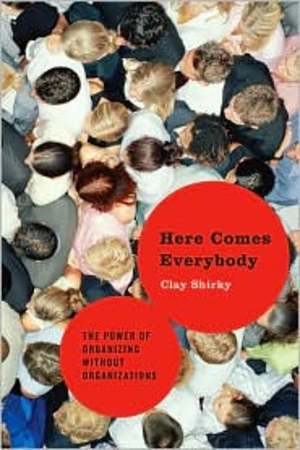Music and Data
Two of my favorite things in the world are “Data” and “Music”. Data is my lifeblood, my source of income. Having an understanding of it at it’s core and trying to determine what it is doing is the foundation for what I do.
From my profession to the REM Chronicle, that looked at R.E.M. concerts since it’s inception or even sorting through baseball cards, there was a certain “Context” to it all.
Data starts with actually collecting it. The aspect of gathering and organizing it in such a manner that it actually makes some sense. Then comes the analysis. What are you expecting out of the data. Do you have theories or hypothesis that you want to check out?
My fear of course is where my two worlds collide. Analyzing the emotional context of a song for purchasing power is both fascinating and scary. While we have always focused on sorting through data, not to the level at which we have the power to do right now.
Consider your favorite record store. They might sort the records by Genre: Rock, Pop, Dance, Hip Hop, Classical, World, .etc. Pretty basic concepts that separate music into fairly simple groupings that the consumer could then go in and view their favorite section(s) of the store looking for something interesting.
Today we have iTunes, a database, in itself that allows the user to create simple queries that if their music is tagged can sort Punk Songs that contain the word ‘Riot’ from albums from 1976-1986 by bands that start with the letter C.
I made a joke years ago with a friend of mine that I wanted to rate (give stars ratings) every one of the songs that are in iTunes so that I could then create “Best Of” lists based on years, genre, girl bands, whatever my hearts desire. My eventual goal would be to have the perfect mix tapes of my favorite “5 Star” songs from emo chick bands from 1993-1998 and send them along their eventual path. In fact, the limited ITunes data gathering that I have accomplished has gone a long way in using iTunes rather than my brain to remember each and every song that I appreciate. Sometimes, it is too hard to be put on the spot at the moment when someone asks you what you really like now. Now if you give me a couple moments to search iTunes, I can probably come up with a good representation of some classic songs.
And yet at the same time while I enjoy all this power with my music collection I get scared of the idea of having my purchasing decisions being determined by the songs that I listen to. Since I bought a copy of Animal Collective’s Merriweather Post Pavilion, I might also enjoy these other 20 albums that listeners bought. To be fair, data analysis can go well beyond finding weird correlations such as fans of Massive Attack’s ‘Mezzanine’ also purchased ‘The Basic Writings of Nietzsche’, although maybe Richard Meltzer might find this interesting.
I write all of this in response to Ethan Kaplan’s blog piece on the future of music for WBR, a piece that should be read by all fans.
Ethan speaks of the delicate balance of using data and representing artists:
I work in the music business. Our business is representing artists. The work that we represent for those artists is their life. It is our job to make sure we treat their life with the preciousness it deserves.
The reason that I think that this article is important is that it changes the construct at which record companies focused their energies. Sure, we can always focus on the “Promotion” aspect; that record companies played a key role in getting songs on the radio, promoting the record, etc. The key aspect for many years was distribution. Larger labels had more resources to make sure albums hit global markets vs. small labels which might only be available on a limited basis, mail order, import, etc. One of the reasons R.E.M. switched from IRS to Warner Bros. was so the band could hit many untapped markets that IRS did not have the resources to enter.
Today, it’s not distribution. Even small indie label artists can get their albums on iTunes and attract a global audience, minus some legal hassles. Hell, I can play the banjo and sing off key and put my songs up on this site for free.
Where data plays a role is being able to focus on artists individually and find ways to properly promote their work.
Now, only time will tell as to whether data will save the record industry. As Ethan mentioned, in an era when we are being bombarded with more information than we can handle, will the industry be able to filter that down to the consumer in a context that they will be able to understand. It is a challenge and a mighty big one.
